India is a multicultural country working to build a sustainable future. A cleaner and greener future has long been promised, and efforts are now being taken to put these plans into action and turn them into a reality. The deployment of electric automobiles on Indian roadways is one such initiative. This is a result of India’s electric vehicle firms being established.
An electric vehicle is one that is powered by electric motors rather than fuel, such gasoline or diesel. The transition to electric vehicles from traditional fuel-powered vehicles promises lower pollution and carbon emissions. For Indian electric vehicle manufacturers, it has created new prospects and a market. More than 30% of Indian automobiles are predicted to be electrified by 2030, per a recent analysis by Arthur D. Little. According to the Economic Survey 2023, the domestic electric vehicle industry in India is expected to develop at a compound annual growth rate (CAGR) of 49% between 2022 and 2030, reaching 10 million yearly sales by that time.
Let’s examine the top ten electric car companies in India now that we are aware of the country’s electric and electric vehicle businesses.
Tata Motors:
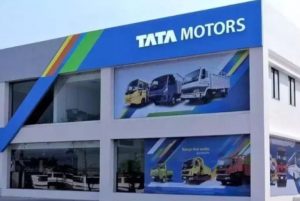
Tata Motors is a multinational automobile manufacturer based in India. As a division of the Tata Group, Tata Motors manufactures buses, vans, coaches, lorries, passenger cars, and electric vehicles. Under Tata Motors, the subsidiary firm in charge of making electric vehicles is Tata Passenger Electric Mobility. The Tata Nexon EV, Tata Tigor EV, and Tata Tiago EV are the three electric cars that Tata Motors has manufactured. Introduced in 2020, the Tata Nexon EV was the first electric vehicle manufactured by Tata Motors.
Morris Garage:
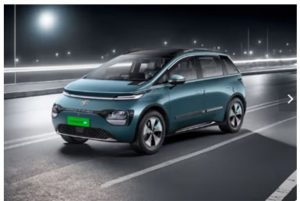
An international manufacturer of electric automobiles is MG (Morris Garage), a British automaker. After TATA, it is reportedly the top EV OEM in the nation. The MG ZS EV, which was introduced in 2022, is the sole electric car that MG has produced in India. MG’s market share is 8.32%. MG has made its way, back to India under the leadership of the SAIC Motor Corporation Limited, the world’s 7th largest automobile company with 36th ranking in the Fortune 500 list. With the inauguration of its first manufacturing facility in September 2017 in Halol, Gujarat, MG is now fully operational in India.
Hyundai:

Based in South Korea, Hyundai Motor Company is the parent company of Hyundai Motor India Limited (HMIL). With a 15 percent market share, Hyundai is the biggest automaker. In 2019, Hyundai made its foray into the electric vehicle market by investing around Rs 69,04,86,17,000 in an EV production line to start producing Kona Electric. The Hyundai Motor Group (HMG; IPA: [ˈhjəːndɛ]; stylized as HYUNDAI) is a South Korean chaebol (loosely similar to a multinational conglomerate but without a central holding company or ownership structure) headquartered in Seoul, South Korea.
Ola Electric:
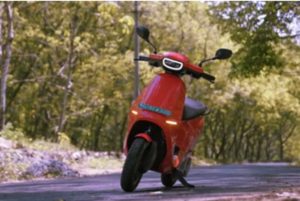
In India, Ola Electric Mobility, also called Ola Electrics, is a manufacturer of electric two-wheelers. Its production facility is located in Tamil Nadu, while its headquarters are in Bengaluru, India. The Ola S1 Air, Ola S1, and Ola S1 Pro are the three electric two-wheelers that the firm has lately produced. In the year 2021, Ola Electric’s first electric scooter was introduced. In the following years, the company hopes to build 10 million electric two-wheelers, making it the biggest brand in the world. In FY23, Ola Electric had a 22% market share.
Ather Energy:
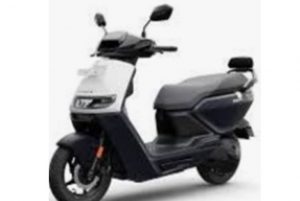
Bangalore is home to the Indian electric manufacturing business Ather Energy. The business produces electric scooters. In 2016, the business introduced the S340, an electric scooter. It featured cutting-edge technology, including touch screens, used-based profiles, and an app to customize scooter settings. The Ather 450X and Ather 450Plus are the two electric scooter models that Ather Energy has released. The Ather Grid is a vehicle charging infrastructure that the firm has set up throughout India. The company sold 8,182 units in April 2023, representing a rise of 117% year over year.
Okinawa:
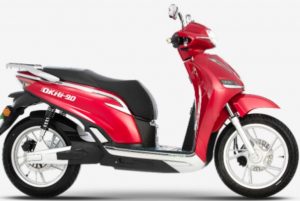
Based in Gurgaon (Gurugram), Okinawa is an Indian firm that manufactures electric scooters. The business is renowned for producing e-scooters with remarkable performance and speed. The company’s production facility is located in Bhiwadi, Rajasthan. The business has produced six electric scooters with two wheels. Okinawa Dual, Okinawa Okhi-90, Okinawa Lite, Okinawa iPraise+, Okinawa PraisePro, Okinawa Ridge+, and Okinawa R30 are the following models. 103,000 units have been sold by the company in the first 11 months of FY2023.
Hero Electric:
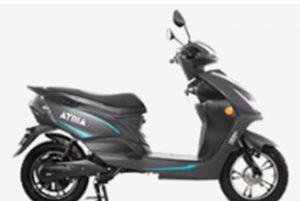
Hero Electric is an Indian firm that manufactures electric two-wheelers. It is among the top manufacturers of electric scooters in India. Before products are put on the market, the company makes sure they go through a thorough inspection and about 46 quality tests. Hero Eddy, Hero Electric Photon HX, Hero Electric NYX HX, Hero Electric NYX HX, Hero Electric Optima LX, Hero Electric Flash LX, Hero Electric Atria LX, and Velocity are the seven electric scooters that Hero Electrics has released. Hero Electric has sold 80,954 units in FY2023. The market share of the corporation is 15.75%.
Mahindra Electric:
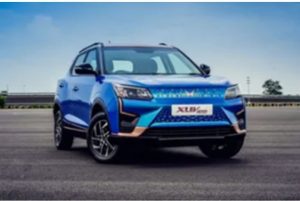
The idea of electric automobiles was first introduced in India by Mahindra Electric, formerly known as Reva Electric Car Company. It is a Banglore-based Indian business. The Mahindra eVerito, Mahindra e2o plus, Mahindra eSupro, Mahindra Treo, and Mahindra eAlfa mini are the five electric vehicles that the firm has produced. One of the first electric vehicles to be offered for sale internationally was the Mahindra Reva, which was introduced in 2001. In the market for electric three-wheelers, Mahindra Electric has a 67.2% share.
TVS:
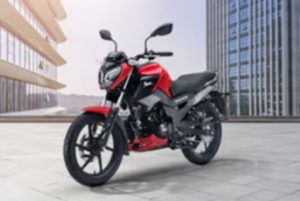
TVS is an Indian firm that manufactures electric two-wheelers. With its main office in Chennai, TVS is currently India’s third-largest motorbike manufacturer by revenue. In 2020, the business introduced the iQube, its first electric scooter. Three electric scooters, the TVS iQube, TVS iQube S, and TVS iQube ST, were just released by TVS. 81,920 units have been sold by TVS in the first 11 months of FY2023. In India, TVS holds a 19.5% market share. TVS Motor Company (commonly known as TVS) is an Indian multinational motorcycle manufacturer headquartered in Chennai.
Greaves Electric Mobility:
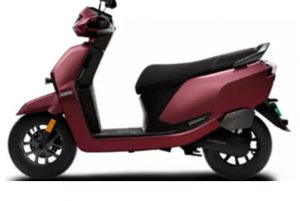
Greaves Electric Mobility Private Limited, the electric mobility business of Greaves Cotton Limited (GCL), is a leading player in Electric Vehicle technology in India. With comprehensive support from GCL’s EV ecosystem, GEMPL has been designing and manufacturing electric vehicles for over 16 years and has established a strong presence in the electric 2-wheeler and 3-wheeler segments. In the electric 2-wheeler segment, the ‘Ampere’ brand is a fast-growing e-scooter brand with a strong presence in both B2C and B2B segments. Furthermore, MLR Auto Limited and Bestway Agencies Private Limited, subsidiaries of Greaves Electric Mobility Private, are rapidly expanding businesses in the electric 3-wheeler segment. With a strong base of over 3 lakh satisfied customers, GEMPL is committed to creating an affordable and sustainable ecosystem that provides the country with uninterrupted, clean, and last-mile mobility solutions.
Greaves Electric Mobility’s Ampere Nexus is a recently launched electric scooter that has already proven its durability. The scooter has been tested for over 10,000 km and holds a record in the India Book of Records for completing a Kashmir to Kanyakumari ride. The Nexus is available in two variants, ST and EX with prices starting at Rs 1.10 lakh (ex-showroom). Ampere Nexus offers a combination of strong build quality, reliable performance, and innovative features to meet the diverse needs of Indian consumers.
Future of Electric Vehicle Companies in India
India now has a vast marketplace and a wide variety of work prospects thanks to the formation of electric vehicle companies there. In addition to the 10 million to 1 crore direct jobs, the Ministry of Skill Development and Entrepreneurship estimates that by 2030, Indian electric vehicle manufacturers might create between 50 million and 1 crore indirect jobs.
The enormous discovery of 5.9 million tons of lithium deposits in India was reported by the Indian government on February 9, 2023. Jammu and Kashmir is where the lithium reserves are found. The Indian economy will benefit greatly from this important discovery. Since lithium is a crucial component in the production of electric vehicles, this is also fantastic news for Indian electric vehicle manufacturers. Additionally, the finding of lithium lessens India’s reliance on imports, which might lower the cost of producing electric vehicles. It is also stated that following the discovery of lithium reserves in Jammu and Kashmir, India may overtake all other countries in the production of electric vehicles.
CONCLUSION
In addition to the economic and industrial advantages, Indian electric car manufacturers have a significant role to play. In India, this sector is essential to lowering pollution and promoting sustainable development. Electric cars emit no pollutants or greenhouse gasses, making them zero-emission automobiles. They are a step toward eradicating exhaust emissions and decreasing reliance on fossil fuels. Since electric cars have no exhaust emissions, they significantly lessen the impact on the environment and reduce air pollution.

